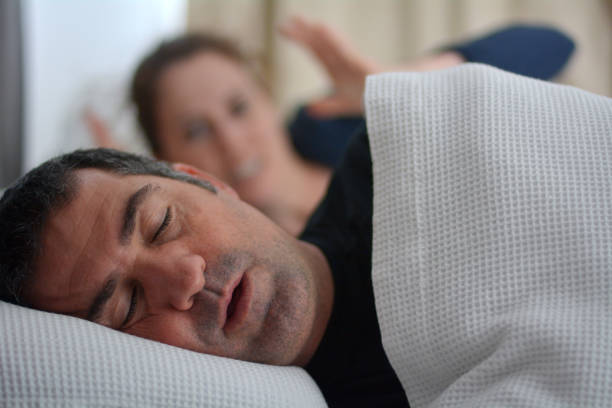You may be sleeping at night, but are you really getting quality rest? The eyes close. Dreams come. The next morning, however, the head still feels groggy. You grow irritable quickly. Deep sleep just wasn’t achieved. Many people suffer from a condition such as this one. Known as sleep apnea, for one reason or another, the body doesn’t breathe properly at night, preventing complete rejuvenation. Here are five things to consider about the disorder.
Check for Obstructions
Adenoids and tonsils become inflamed. While both are useful in fighting infections, they could become disruptive for some people. When swollen, the glands block airways, making it hard to breathe through the nose and mouth. The body then must wake up to take in appropriate oxygen. Snoring is common and so is exhaustion. See an ENT to have a thorough exam. These glands could be removed to improve air circulation.
Watch Your Heart
When oxygen levels dip, the body doesn’t have what it needs to function. This not only impairs thought, but it could prove troublesome to the heart. Sleep apnea suffers should monitor blood pressure levels. Long-term deprivation could raise the rate, making those inflicted more likely to have heart attacks or strokes.
Speak With Your Dentist
The dentist may feel you qualify for oral appliance therapy. Patients are fitted for a device similar to a retainer. Worn at night, this piece could improve sleep. See your Brooklyn dentist to discuss whether the option is right for you.
Avoid Sleeping on Your Back
When you sleep on your back, the tongue and soft palate might shift to block the airway. This increases snoring and inhibits your sleep. Try to stay on your side or abdomen. This may seem tricky. Place a soft object such as a pillow or pool noodle to your side. During the evening, the body may try to roll. This might be enough to stop the action. Products are available that vibrate as well, keeping you in proper position.
Exercise and Lose Weight
The pressure of extra pounds could contribute to breathing issues at night. Work with a physician to understand an ideal weight. Then, together, create a diet plan that works for your body type. This should not only include healthy meals but exercise. At least 30 minutes a day may be enough to improve slumber.
The body and mind require sleep to fully function the next day. If you have any concerns, speak with specialists to gain some relief.
